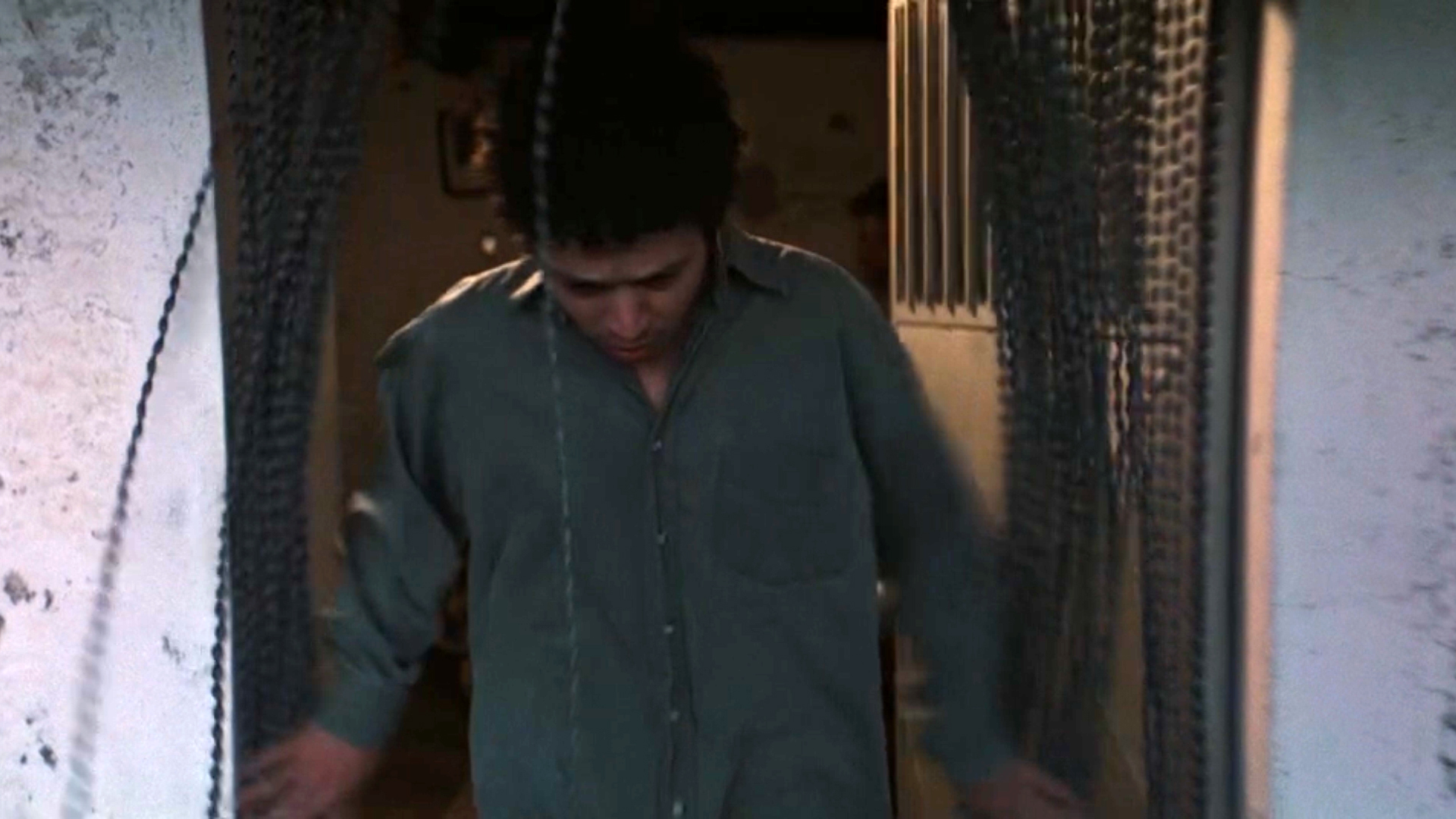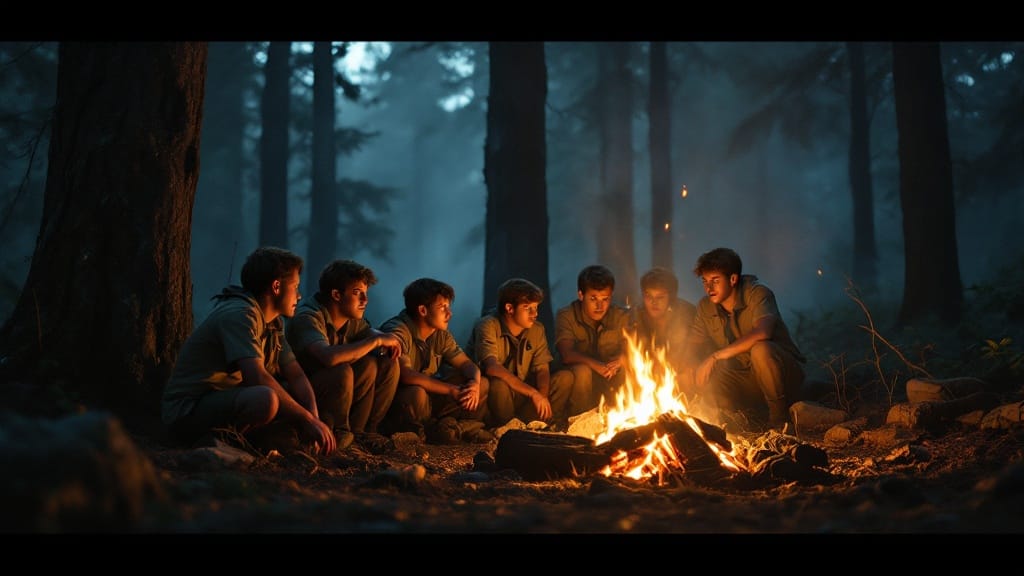Drama
Lobo

Directed by Sean Connolly
This review contains SPOILERS
Lobo is an exploration of brotherhood, sacrifice, and the complexities of familial loyalty. The film follows two brothers, one fearless and the other timid, who flee into the wilderness after a violent confrontation that results in the death of their abusive father. As they escape deeper into the wild, their bond is tested, and the film unravels layers of trauma, guilt, and the lengths to which one will go to protect their family. What makes Lobo stand out is not just its narrative, but the emotional depth it manages to convey through minimal dialogue, evocative landscapes, and moments of introspective silence.
The cinematography in Lobo utilizes the rugged natural environment to mirror the psychological terrain the characters traverse. The vastness of the wilderness contrasts sharply with the brothers’ intense, confined emotional states. The lighting is consistent, often casting a moody, almost ethereal glow that feels both isolating and intimate, fitting for a story about two brothers forced to confront their inner demons while trying to evade external danger. Each shot is carefully composed to emphasize the emotional distance between the brothers, especially in the early parts of the film when their connection feels strained.
Sound design plays a pivotal role in creating the atmosphere of tension and dread that pervades the film. The near silence of certain moments, like when the brothers sit by the campfire, draws the viewer in, making every subtle sound—from the crackle of the flames to the rustling leaves—carry weight. This quietude contrasts well with the chaos of their initial flight, where the sound of police sirens and heavy breathing creates a palpable sense of panic. There’s a moment early on where the diegetic sound fades as the mother speaks, a deliberate choice that underscores the disconnect between the characters and their tragic reality.
The performances of João Nunes Monteiro and Diogo Martins as the two brothers are both nuanced and raw. Monteiro, as the older brother, exudes a quiet stoicism, burdened by the responsibility he feels for his younger sibling. His protective instincts are immediately apparent, even as his inner turmoil simmers just beneath the surface. Martins, playing the younger brother, gives a more layered performance, balancing vulnerability with moments of intense anger, particularly as the truth of what happened to their father comes to light. The chemistry between the two actors sells the emotional core of the film—while they are brothers, they are also strangers in many ways, trying to reconnect after years of separation.
Lobo is about survival—not just in the physical sense, but emotionally. The brothers’ journey into the wilderness forces them to face the turbulent events of their past, and the deeper they venture into the wild, the more reality begins to blur. The twist that reveals the younger brother as the one who actually killed their father adds a layer of complexity to the narrative. It reframes the entire story, turning it from a simple tale of evasion into a meditation on guilt and sacrifice. The fact that the older brother attempts to take the blame only heightens the emotional stakes, making his eventual decision to turn himself in all the more devastating when the truth is revealed.
Though the plot may not be groundbreaking—some viewers may anticipate the twist—the film’s emotional depth and the way it handles the theme of brotherhood are its true strengths. The dynamic between the brothers is the beating heart of the film, and Connolly’s direction ensures that their relationship feels authentic and deeply affecting. Even as the narrative heads toward its inevitable conclusion, the emotional resonance remains strong, leaving the audience to reflect on the weight of familial bonds and the sacrifices we make for those we love.
The film does occasionally lean into familiar tropes, particularly in its depiction of the older brother as the stoic protector and the younger as the more impulsive, guilt-ridden character. While these archetypes are effective, they could have been fleshed out further to add more depth to their individual personalities. Additionally, I find the pacing of the film slow at times, particularly during the quieter, more reflective moments. However, this deliberate pacing allows the tension to build gradually, leading to an emotionally charged climax that feels earned.
Lobo is an emotionally gripping film that blends the tension of a thriller with the intimacy of a family drama. Its cinematography, strong performances, and deeply felt themes make it a compelling watch. Audiences who appreciate films that delve into the psychological and emotional complexities of familial relationships, set against a backdrop of tension and uncertainty, will find much to admire in Lobo. It is a film that lingers long after the credits roll, reminding us that sometimes the greatest battles we face are not against the world, but within our own family.
Comedy
Troop 458

WARNING! This review contains SPOILERS!
Troop 458, written by Trevor Allen, captures the often daunting, yet transformative, experience of being the new kid in a world full of unknowns. We follow Sidney, an anxious boy thrown into his first Boy Scouts campout, where he faces both the perils of acceptance and the strangeness of his eccentric scout leader. As spooky campfire tales start to weave into reality, Sidney is forced to confront his fears head-on, finding moments of humor, adventure, and unexpected camaraderie along the way.
I like the concept of Troop 458 because it blends coming-of-age themes with a playful sense of adventure, all wrapped in an atmosphere tinged with just the right amount of mystery. Allen’s writing brings to life a cast of memorable characters, especially through Sidney’s journey of growth. The tension between humor and fear feels authentic to the Boy Scouts’ setting, and it captures the real challenges kids face when trying to fit in.
What resonated with me most was the screenplay’s exploration of courage—not just in facing mythical dangers but in embracing who you are, quirks and all. Some aspects could benefit from a clearer focus on character motivations and tighter pacing to keep the momentum strong, particularly during scenes that blur the line between myth and reality.
The dialogue is great in many places, offering humor that feels natural for a group of young scouts. There were moments where I felt the conversations could be a bit sharper or more distinct to heighten the comedic or emotional impact. Character development is a strong suit, with Sidney’s evolution being both relatable and satisfying, but secondary characters could have a bit more depth to elevate the ensemble.
Allen’s Troop 458 is polished, with solid grammar, spelling, and formatting that adhere to professional standards. The structure is clean and makes for an easy read, setting up scenes that are visually compelling.
Troop 458 delivers an enjoyable mix of humor, heart, and a touch of the supernatural, leaving me eager to see how it might come to life on screen.
Drama
Ellie

WARNING! This review contains SPOILERS!
Directed by Marcus Mejia
Ellie is a refreshing experience that pulled me right into the world of a young, shy man navigating a work meeting while secretly yearning for a bit of magic in his everyday life. We’re taken through his imaginative, musical daydream—a beautiful escape from reality that reveals his true desires. I loved how the film peeled back layers of his personality without a single word of dialogue. Instead, the music carried the narrative, and surprisingly, it worked so well.
Marcus Mejia did an excellent job blending dramedy elements to keep the film engaging. The moments of humor and more emotional beats make the film feel well-rounded. Mejia’s choice to swap dialogue for music was a bold move, and it paid off. I could feel the character’s internal struggles and hopes as the music brought out emotions words couldn’t.
The lighting felt intimate, almost like it was giving us a window into the protagonist’s soul, and the cinematography perfectly captured the whimsical tone of his daydreams. I noticed how smoothly the editing transitioned between reality and fantasy, which made the story’s pacing feel just right. The sound design was on point, with every beat of music syncing beautifully with the character’s emotional highs and lows.
I loved when the protagonist’s daydream overlapped with reality, creating this seamless blend that felt so relatable. I admired how it portrayed the quiet, unspoken dreams we all carry. It was a reminder of the power of our inner worlds and how much magic lies just beneath the surface of our everyday lives.
Ellie left a gentle yet lasting impression. It’s a unique, heartfelt short film that shows how creative risks can pay off. Ellie is a memorable journey that’s definitely worth the watch.
Drama
Finding Acceptance

Directed by Andrew DeBennett
WARNING! This review contains spoilers.
Watching “Finding Acceptance” was an experience that brought me back to those anti-bullying films we’d see in school assemblies. The story follows Mary, a new student in a wheelchair, navigating the often-tough world of school friendships. Initially, she faces teasing from her peers but finds a genuine friend in Liz, who even manages to extend kindness to Mary’s bully, Max. The message is straightforward and clear: acceptance and empathy matter.
I could see what the director was aiming for—Andrew DeBennett notes that the film was both a joy to create and a personal project. The heart of the story shines through, with Kaylah Pollock (Mary) and Laney Hansen (Liz) bringing warmth to their roles. Their connection feels genuine, even if the overall story feels a bit too familiar.
Technically, the film could have used some fine-tuning. The sound mix was rough, with the music often drowning out dialogue. The editing also felt choppy, making it harder to stay immersed in the story. The dialogue leaned into clichés—phrases like “loser” felt outdated and took away from the realism. The cinematography, however, was a bright spot, creating a warm, inviting feel that suited the film’s positive message.
I felt like the story could’ve benefited from more depth. The bullying that Mary faces is minimal, making her eventual friendships feel somewhat predictable. For younger audiences, this simplicity might be engaging and easy to digest, but it misses the chance to delve into the more complex aspects of acceptance.
In the end, “Finding Acceptance” delivers a positive, albeit simple, message. While it didn’t connect with me on a deeper level, I can see it being a useful film for educational settings, especially for younger viewers learning about kindness and friendship.










